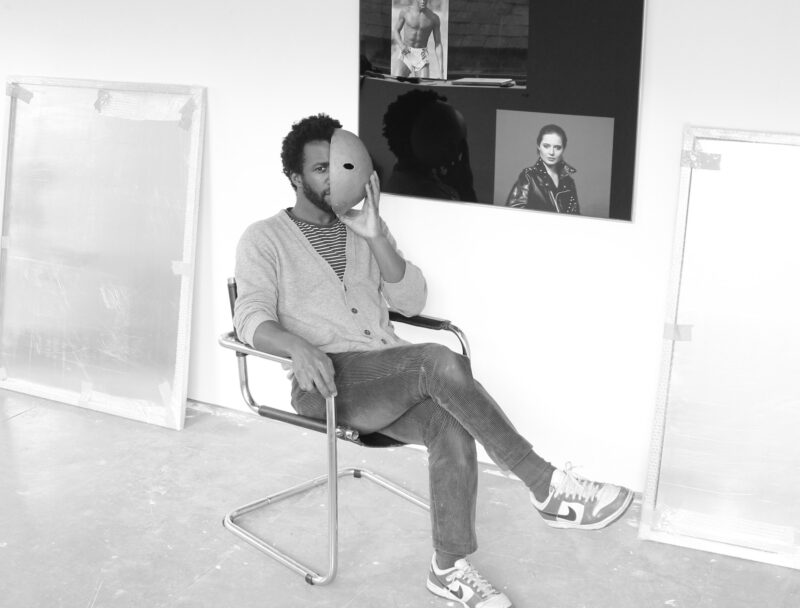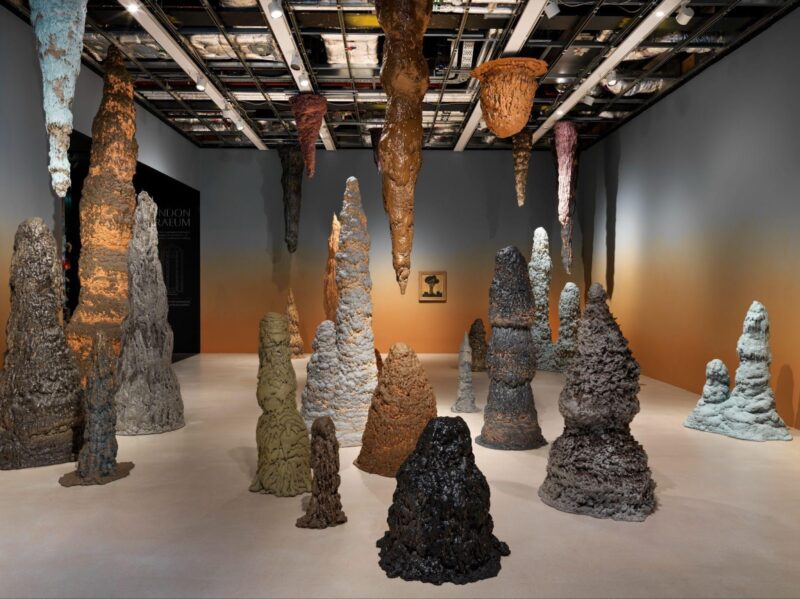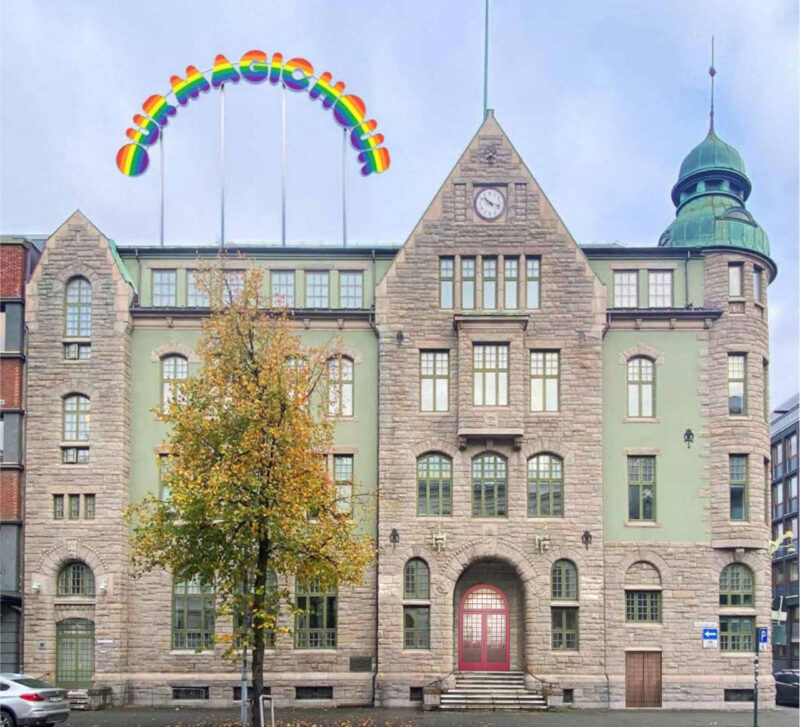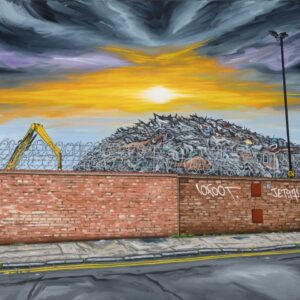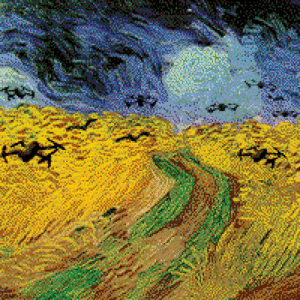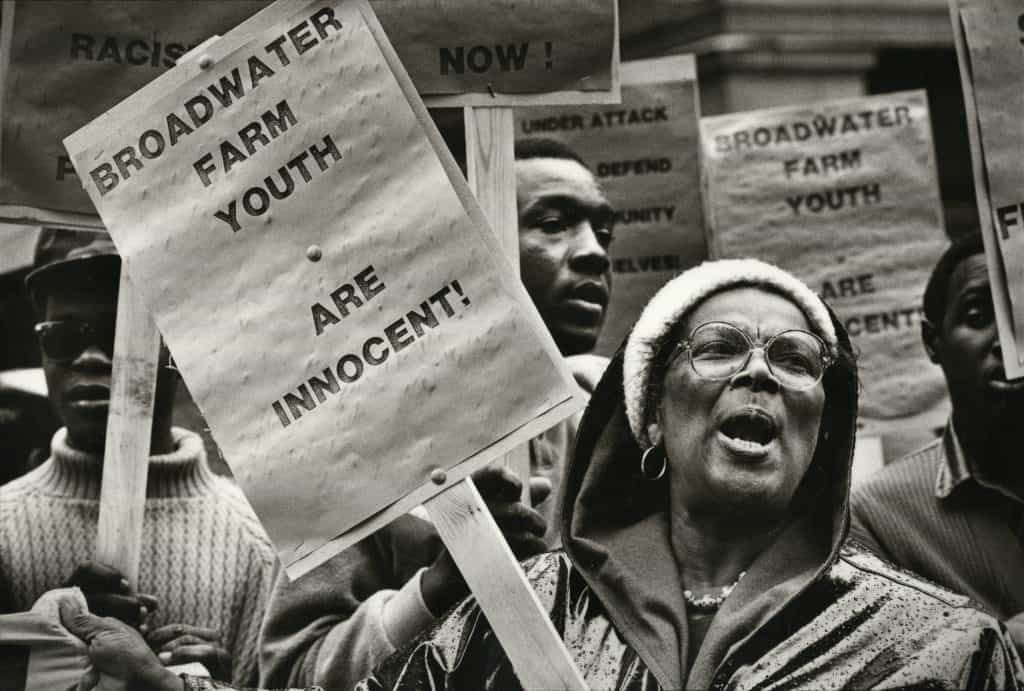
The Institute of Contemporary Arts reopens on July 6th with War Inna Babylon: The Community’s Struggle for Truths and Rights, an exhibition curated by London-based racial advocacy and community organisation, Tottenham Rights, and independent curators Kamara Scott and Rianna Jade Parker.
‘We are pleased to have been given this opportunity to exhibit, and reflect on, the lived experiences and challenges faced by members of Britain’s Black communities, whose voices are seldom heard outside of their own neighbourhoods.
‘While War Inna Babylon was originally scheduled to open in May 2020 – the delay due to Covid-19 – has inadvertently made this the most timely exhibition it could possibly be.
‘In light of events over the past year, that have shown how little value is placed on Black lives – the Covid-19 Public Health England Review, BLM demonstrations, the Sewell washout, the increased use of police violence, and stop and search procedures against members of the Black community – we view this as the perfect time to focus on grassroots activism in Black frontline communities across the UK; which have been at the forefront of resisting state oppression and creating unfounded change for racial justice since the 1970s.’
Stafford Scott, co-Founder of Tottenham Rights
Ten years on from the UK-wide riots sparked by the police killing of Mark Duggan, this exhibition shines a light on the vast range of collective actions, resistance and grassroots activism undertaken by Black communities across the UK in response to over seven decades of societal and institutional racism.
Using the ‘symbolic location’ of Tottenham, a neighbourhood that has received much attention in recent years due to its history of racial conflicts and heavy-handed policing; this exhibition combines archival material, documentary photography, film and state-of-the art 3D technology to ‘act as a window to the past and as a mirror for our present-day social climate’.
War Inna Babylon chronicles the impact of various forms of state violence and institutional racism targeted at Britain’s Black communities since the mass arrival-upon-invitation of West Indian migrants in the late 1940s.
The exhibition includes original tributes from victims’ families, case studies of the controversial ‘sus’ (suspected person) laws and the Gangs’ Matrix, and highlights legal developments that have resulted from Black justice campaigns. War Inna Babylon will also present a new investigation into the killing of Mark Duggan by Forensic Architecture.
‘War Inna Babylon is a long overdue celebration of Black communities and their historic struggles against racism. I am grateful to Kamara and Stafford Scott of Tottenham Rights, as well as Rianna Jade Parker, for the trust they extended to all of us at the ICA in working with us on this exhibition.
‘Racism and anti-Blackness in Britain are real and no institution is free from it. Cameron Rowland’s exhibition with us last year traced elements of our own building back to Britain’s central role in slavery; Tottenham Rights’ War Inna Babylon connects this legacy to the present moment and shows how contemporary institutions and policies, such as policing, continue to be structured by this legacy.
‘As an institution ourselves we are not immune to this. Over the past ten months, we’ve asked The Monitoring Group, Britain’s leading anti-racism advocacy group – a group that Tottenham Rights grew out of – to review our own policies, behaviour and culture. With their support, we are working to become a truly proactive anti-racist organisation in everything we do.
‘I’d like to also thank the ICA’s long-term partner Forensic Architecture for contributing the new investigation into the killing of Mark Duggan.’
Stefan Kalmár, Director of the ICA
The exhibition, the first of its kind to accurately assess the conditions of Black lives across Britain, will be accompanied by an extensive public programme presented both in Tottenham and at the ICA that will include film screenings, community educational groups, talks, cultural events, performances, and a digital presentation focusing on the interrelation between artificial intelligence (AI) and racism.
‘The case of Mark Duggan’s death is not only another senseless killing of a Black Londoner by the Metropolitan Police. More than that, it is compelling evidence of the deep, structural problems that exist in the way police brutality is accounted for in the UK. Soon, we will publish a new book on this killing, in partnership with the ICA. Our findings, which have been shared with the police watchdog and the Mayor of London, show that the official conclusions about Duggan’s death don’t add up. Based on our evidence, the case must be formally revisited.’
Eyal Weizman, Director of Forensic Architecture
War Inna Babylon: The Community’s Struggle for Truths and Rights 6th July – 26th September 2021 ica.art
Tottenham Rights
With over three decades of experience supporting Black communities across the UK, Tottenham Rights is a racial justice organisation that provides advocacy services to those who are vulnerable to over-policing, and have suffered other forms of institutional racism; through victim and family-led campaigns, police monitoring, and race equality consultancy. Tottenham Rights is an offset of the Broadwater Farm Defence Campaign and co-founded by The Monitoring Group, following the police killing of Mark Duggan in 2011.
Rianna Jade Parker
Rianna Jade Parker is a critic, curator and researcher based in South London. She was a founding member of interdisciplinary art collective Thick/er Black Lines – whose work was exhibited in the landmark exhibition Get Up, Stand Up Now: Generations of Black Creative Pioneers. She is a Contributing Editor of frieze and her book A Brief History of Black British Art is forthcoming from Tate Publishing.
Forensic Architecture
Over the past decade, Forensic Architecture has mobilized an array of innovative technological, aesthetic, and legal strategies to undertake close to seventy investigations of state and corporate crimes worldwide. Conducted in collaboration with community groups, social movements, and civil society partners, these investigations have often made decisive contributions to cases in national and international courts, people’s tribunals, and truth commissions. Exhibited in museums and galleries around the world, they have also been crucial in reimagining the relationship between art, culture, and politics today.
